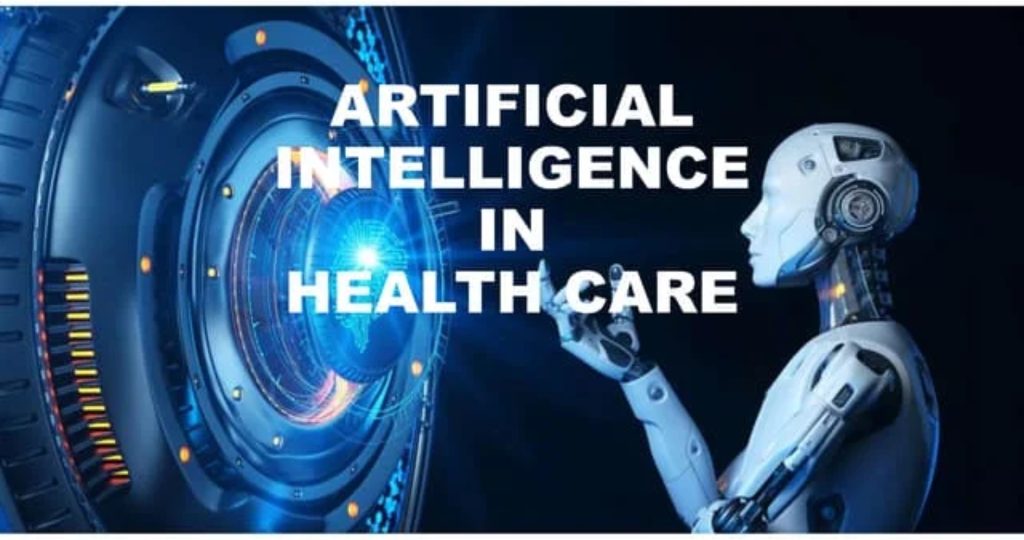Revolutionizing Patient Care: The Transformative Power of Artificial Intelligence in Healthcare
Artificial intelligence in healthcare is rapidly evolving from a promising concept to a tangible force reshaping the landscape of patient care, medical research, and healthcare administration. By leveraging the power of machine learning, natural language processing, and other AI techniques, the healthcare industry is witnessing unprecedented advancements in diagnostics, treatment planning, drug discovery, and operational efficiency. The transformative potential of artificial intelligence in healthcare promises to enhance patient outcomes, reduce costs, and ultimately create a more personalized and effective healthcare system for all. Understanding the multifaceted applications of AI in healthcare is crucial for stakeholders across the medical spectrum.

Understanding the Fundamentals of Artificial Intelligence in Healthcare
To truly appreciate the revolutionary impact of artificial intelligence in healthcare, it’s essential to grasp the core AI concepts being applied. Machine learning algorithms enable computers to learn from data without explicit programming, allowing them to identify patterns and make predictions in medical imaging analysis, disease diagnosis, and patient risk stratification. Natural language processing (NLP) empowers AI systems to understand and interpret human language, facilitating tasks like analyzing electronic health records (EHRs), extracting key information from medical literature, and improving patient communication through chatbots. The synergy of these AI technologies is driving innovation across various healthcare domains.
Enhancing Diagnostics with Artificial Intelligence in Healthcare
One of the most impactful applications of artificial intelligence in healthcare lies in its ability to enhance diagnostic accuracy and speed. AI-powered image analysis tools can analyze medical images, such as X-rays, CT scans, MRIs, and pathology slides, with remarkable precision, often identifying subtle anomalies that might be missed by the human eye. This AI-assisted diagnosis can lead to earlier detection of critical conditions like cancer, diabetic retinopathy, and neurological disorders, significantly improving patient prognosis. Furthermore, AI algorithms are being developed to integrate various data sources, including medical history, genetic information, and real-time physiological data, to provide more comprehensive and accurate diagnoses. The role of AI in medical imaging and AI in disease detection is becoming increasingly vital.
Personalizing Treatment Planning Through Artificial Intelligence
Artificial intelligence in healthcare is also revolutionizing treatment planning by enabling more personalized and effective interventions. AI algorithms can analyze vast amounts of patient data to predict individual responses to different treatments, allowing clinicians to tailor therapies based on a patient’s unique characteristics and disease profile. This AI-driven personalized medicine approach has the potential to improve treatment outcomes, reduce adverse effects, and optimize resource utilization. For instance, AI models can predict the likelihood of a patient responding to specific chemotherapy regimens or identify the optimal dosage for certain medications. The application of AI in personalized healthcare is paving the way for more targeted and patient-centric care.
Accelerating Drug Discovery and Development with Artificial Intelligence
The traditionally lengthy and expensive process of drug discovery and development is being significantly accelerated by artificial intelligence in healthcare. AI algorithms can analyze massive datasets of biological and chemical information to identify potential drug candidates, predict their efficacy and safety profiles, and even design novel molecules with specific therapeutic properties. This AI-powered drug discovery can drastically reduce the time and cost associated with bringing new treatments to market. Furthermore, AI is being used to optimize clinical trial design, identify suitable patient populations, and predict trial outcomes, making the entire drug development pipeline more efficient. The impact of AI in pharmaceutical research is poised to revolutionize the development of new therapies.
Improving Healthcare Operations and Efficiency with Artificial Intelligence
Beyond direct patient care, artificial intelligence in healthcare is also playing a crucial role in improving operational efficiency and reducing administrative burdens. AI-powered natural language processing (NLP) can automate tasks like analyzing electronic health records (EHRs) to extract key information, streamlining documentation processes, and facilitating communication between healthcare providers. AI-driven scheduling systems can optimize appointment scheduling, reduce no-show rates, and improve resource allocation. AI-powered chatbots can handle routine patient inquiries, provide information, and guide patients through administrative processes, freeing up human staff to focus on more complex tasks. The application of AI in healthcare management is leading to more streamlined and efficient healthcare systems.
The Role of Artificial Intelligence in Remote Patient Monitoring
The increasing need for accessible and continuous patient care is driving the adoption of artificial intelligence in remote patient monitoring. AI-powered wearable devices and remote sensors can collect real-time physiological data from patients in their homes, allowing healthcare providers to monitor their conditions remotely and detect potential health issues early. AI algorithms can analyze this data to identify trends, predict exacerbations of chronic diseases, and trigger timely interventions, improving patient outcomes and reducing the need for hospitalizations. The use of AI in telehealth and AI in remote monitoring is expanding access to care and enhancing patient engagement.
Addressing Ethical Considerations and Challenges in AI Healthcare
While the potential benefits of artificial intelligence in healthcare are immense, it’s crucial to address the ethical considerations and challenges associated with its implementation. Data privacy and security are paramount concerns, as AI systems rely on access to sensitive patient information. Algorithmic bias in healthcare AI is another critical issue, as biases in training data can lead to unfair or discriminatory outcomes. Efforts are needed to develop fair and unbiased AI algorithms for healthcare applications. Transparency and explainability of AI decisions in healthcare are also important to build trust and enable clinicians to understand and validate AI recommendations. Addressing these ethical challenges of AI in healthcare is crucial for its responsible adoption.
The Future Landscape of Artificial Intelligence in Healthcare
The future of artificial intelligence in healthcare is bright and full of transformative possibilities. We can expect to see even more sophisticated AI applications emerging in areas like predictive analytics for disease prevention, robotic surgery with enhanced precision, and the development of AI-powered virtual healthcare assistants that provide personalized support and guidance to patients. The integration of AI with genomics will further personalize medicine, leading to more targeted therapies based on an individual’s genetic makeup. The continued advancements in AI algorithms and computing power will unlock even greater potential for AI to revolutionize healthcare. The ongoing advancements in AI for healthcare promise a future of more proactive, personalized, and efficient care.
Collaborating Towards a Future Powered by Artificial Intelligence in Healthcare
Realizing the full potential of artificial intelligence in healthcare requires a collaborative effort involving clinicians, researchers, technology developers, policymakers, and patients. Open dialogue and the establishment of clear ethical guidelines and regulatory frameworks will be essential to ensure the responsible and beneficial implementation of AI in the medical field. Investing in education and training programs will equip healthcare professionals with the skills needed to effectively utilize AI tools and collaborate with AI systems. Ultimately, the successful integration of artificial intelligence in healthcare will depend on our collective commitment to innovation, ethical considerations, and a shared vision for a future where AI empowers healthcare professionals and improves the lives of patients worldwide.
By strategically incorporating the keyword “artificial intelligence in healthcare” and related terms throughout the text, optimizing headings, and addressing key SEO concepts like benefits, applications, challenges, and future trends, this article aims to be both SEO-friendly and highly informative for readers interested in this rapidly evolving field.

